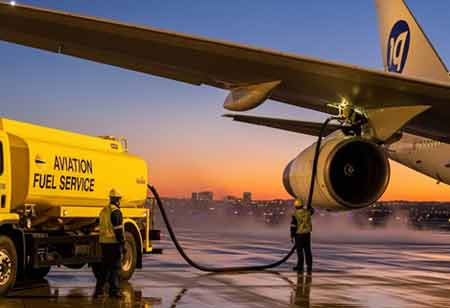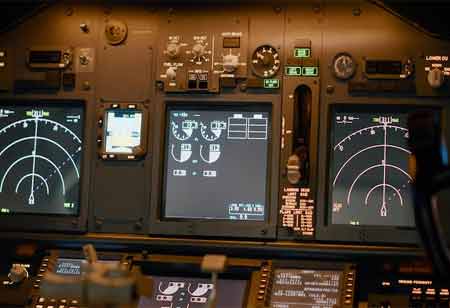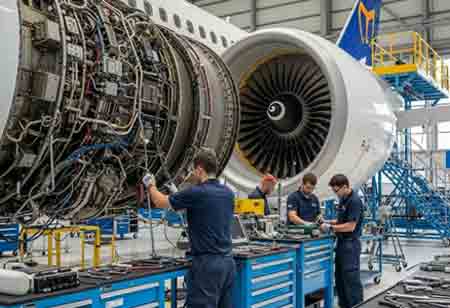In the aviation world, operational efficacy is contingent on the reliability of every support function. Among them all, fueling services hold arguably the most importance. Unfortunately, on-schedule and exact fuel delivery impacts applications with such tight timelines, and of course, in safety and cost management. In this fast-ticking and very stringent setting, nothing matters more than dependable aircraft fueling.
The high-caliber fueling service thus becomes central to the seamlessness of aviation as it further expands itself amid airlines, whether in a global or regional dimension. Indeed, airport networks expect ground service providers to provide ever-greater precision and compliance in an increasingly competitive environment in aviation, where safety hangs in the balance at the other end of the scale.
Reliable aircraft fueling services extend beyond merely fueling an aircraft. It requires solid infrastructure, trained personnel, and concerted coordination with airside operations. Every step of operation, from fuel storage and handling to hydrant management and into-plane services, requires strict attention to performance parameters.
A slight deviation in operational performance checks means safety risk, delay, or waste of operational costs, whereby aviation fuel service providers must comply with industry regulations, environmental protocols, and manifest transparency in their service deliverables. In the present aviation ecosystem, the ability to offer reliable fueling service has been considered a strategic advantage.
Precision and Safety in Fuel Handling Procedures
One fundamental component of aircraft fueling reliability is uniformity in fuel handling procedures. Fuel handling starts long before the fuel arrives at the helicopter and incorporates testing and quality control procedures throughout storage and transfer. Fuels are required to meet stringent specifications and are free of contaminants that would hinder engine performance. Maintaining fueling equipment and filtration systems and inspecting fuel storage facilities are significant investments for service providers as they ensure the safe and efficient delivery of fuel under varying operational conditions.
Moreover, trained personnel play a critical role in maintaining fuel reliability. Technicians are required to follow established protocols for grounding aircraft, monitoring temperature and pressure levels, and executing standardized checklists. These practices reduce the likelihood of human error and ensure compliance with aviation safety standards. Such precision assists in avoiding delays and maintaining departure schedules where multiple aircraft may be serviced within narrow time windows. Beyond this, modern automation and real-time monitoring systems are becoming integrated into the fueling operation for greater oversight and nimble troubleshooting when called for.
Operational Coordination and Turnaround Efficiency
Sustaining turnaround efficiency directly relates to the overall time spent in a given airport, where aircraft fueling plays a central role. Thus, cooperation among fueling teams, flight crews, and airport operations must be seamlessly coordinated not to disrupt service. Reliable providers understand the airside-operation dynamics and schedule fueling so that it coincides with the arrival of the aircraft, gate assignment, and pre-take-off procedures. Clear communication between all parties ensures that fueling starts on time and is finished in the time allotted, allowing the aircraft to take off when planned while also maximizing capacity.
Turnaround efficiency is crucial for busy airports requiring close flights. Minor delays with fueling may easily snowball into changes in the schedule enjoyed by passengers. Reliable providers mitigate such risks through advanced planning, equipment availability redundancies, and a clear escalation protocol should any link in this chain deviate. Flexibility is required in case any weather changes, changes in gate assignments, or last-minute changes on aircraft interchange affect fueling meetings. Quick responsiveness in this matter supports operational consistency while not compromising quality or safety.
Sustainability and Future-Proofing Fuel Services
As environmental regulations and sustainability goals become more central to aviation strategies, the pressure on fueling service providers to align their practices with such regulations is mounting. Each reliable provider is not only interested in meeting the demands set forth but also in future-proofing their services. This consists of integrating sustainable aviation fuel into their fueling operations, modifying their infrastructure to support fuel blends, and finally, carbon emissions offset applicable to their fueling activities. Other approaches are investing in efficient fuel tankers and electric ground service equipment and using digital systems for documentation, which will improve performance.
Apart from environmental considerations, long-term reliability needs regular training for workers. Workers must update themselves with certifications and best practices to maintain a high quality of service as new technologies and procedures are applied in the industry, transitioning to new energy models and digital platforms. Regulatory compliance will continue to evolve, and all stakeholders involved in fueling operations will need to demonstrate great adaptability and flexibility. Service providers with foresight are conscious of this and are actively seeking ways to innovate the business and improve the processes to meet customer expectations and ever-evolving industry trends.









